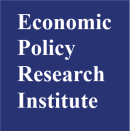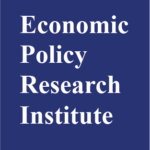The International Training Programme is funded by the Swedish International Development Cooperation Agency (Sida) and is jointly implemented by Arbetsförmedlingen (the Swedish Public Employment Service) and the Economic Policy Research Institute (EPRI).
Globally, social protection represents one of the fastest growing policy sectors—in part, because its main aim—tackling poverty, vulnerability, and social exclusion—strengthens the foundations for positive change around the world. The ITP aims to expand and improve the effectiveness of national social protection systems, tackling exclusion, promoting gender equality, and strengthening developmental impact.
The programme builds the capacity of teams integrating multiple government ministries, public agencies, and non-governmental organisations in the partner countries to identify, design, finance, implement, monitor, and evaluate change programmes.
In five years, country teams will work on the change programme in sequence with the ambition to fully operationalize the programme after five years for the long-term. The adopted approaches align with Swedish guiding principles for development cooperation and include values for human rights and the integration of a gender perspective for equal rights of men and women.
Programme features
The core modules of the ITP will include training in seven main areas –
- Rights-based and life cycle frameworks for social protection systems
- The design and implementation of social protection systems to ensure social inclusion
- Strengthening developmental impacts by integrating inter-sectoral initiatives to multiply social protection impacts and support the SDGs (“Social Protection Plus”), with a particular focus on decent and productive employment,
- Enabling social protection to promote gender equality,
- Financing and co-financing social protection reforms, expansion and integration, and
- Monitoring and evaluating social protection systems to enable evidence-based change.
- Social protection responses to the COVID-19 pandemic and lessons from the global crisis.
Programme outcomes
Through the programme and engagement in the regional workshops, participants will gain:
- Knowledge and enhanced capacity on social protection systems and their role in tackling poverty, vulnerability and social exclusion while strengthening inclusive social development with decent and productive employment.
- Understanding of the value in building inter-ministerial and inter-agency initiatives as instruments for integrating social protection with other developmental sectors, including health, education, employment, and others.
- Capacity and knowledge to plan and implement a project for change to initiate and manage sustainable reform processes by building more effective social protection systems.
This is what our alumni had to say
“By reflecting and sharing experiences from other countries, this is an opportunity to assess ourselves and improve the way we are implementing our national programmes.” ITP322 Alumni participant from Rwanda.
“When we signed up for the ITP, we knew this was a lifelong commitment. We must be able to support the teams (subsequent team members) as they come on board.” ITP322 Alumni participant from Zambia.
“With the ITP, there is a growing pool of social protection knowledge experts, who can make the case for social protection investment in the country but also link social protection to national development.” ITP322 Alumni participant from Uganda.

